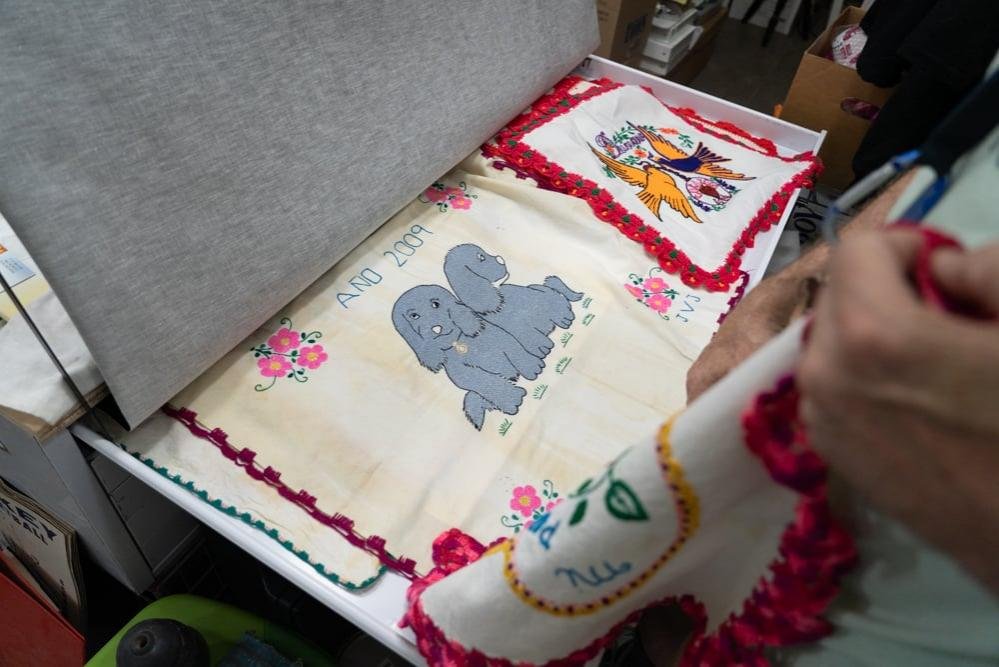border
2024 Highlights: Tucson Sentinel Unveils This Year’s Most Captivating Stories

As Tucson welcomed 2024, a mix of persistent issues and fresh developments captured the city’s attention. Key topics included ongoing immigration and asylum challenges, the quest for election integrity, a housing crisis, and a string of deaths at the local jail. The tug-of-war between urban growth and environmental concerns also remained a pressing issue.
Highlighting these stories were the dedicated efforts of journalists from Tucson Sentinel, including Paul Ingram, Report for America corps members Bianca Morales and Jim Nintzel, as well as several 2024 Sentinel Reporting Fellows. In-depth analysis came from columnist Blake Morlock, with local sports coverage from Ted Prezelski, and accountability reporting led by Editor Dylan Smith. A collective effort ensured critical local issues remained in the public eye amid a year filled with breaking news.
Immigration and Border Affairs
The immigration and border security debate loomed large, influencing both local discourse and the presidential race. After a month-long closure, the Lukeville border crossing reopened, while photographer Tom Kiefer worked to document items seized from migrants. Alvaro Enciso, an activist, continued his poignant efforts by placing hand-made crosses in the desert to memorialize those who lost their lives while attempting to cross.
Pima County grappled with funding for migrant shelters, and a lawsuit was filed against Border Patrol agents linked to a fatal shooting of a Tohono O’odham man. Similarly, concerns arose in Arivaca about the involvement of Border Patrol in local incidents. There was a concerted effort towards comprehensive immigration reform, although results seemed unlikely in the current political landscape.
Gun trafficking lawsuits emerged as Arizona gun stores sought jury trials against Mexico, and various legislative initiatives were introduced regarding how Customs and Border Protection interacts with seized personal property. Drug and human trafficking along the borderlands remained prevalent despite ongoing efforts to combat these issues.
Government Actions and Local Developments
Arizona’s Department of Transportation initiated a program aimed at assisting drivers with autism during traffic incidents. Meanwhile, Tucson Parks and Recreation proposed a significant cut to pool hours, which raised concerns among residents. In a notable development, Tucson marked the first decade of the Sun Link streetcar, while underlining a commitment to diverse leadership with the appointment of an all-female assistant city manager team.
Amid growing political turbulence, Rep. Raúl Grijalva announced his battle with cancer and stated he would not seek re-election in 2026, marking a significant shift in local politics. Under additional scrutiny, Pima County Treasurer Beth Ford and Tucson City Councilman Steve Kozachik both resigned, with Karin Uhlich stepping in as his replacement.
Elections and Voting Issues
The 2024 elections witnessed robust “Get Out The Vote” initiatives, with appearances from high-profile political figures including former President Barack Obama and Democratic nominee Kamala Harris. The tension between candidates sharpened, particularly in Pima County races, where heated debates arose over jail conditions and staffing issues.
Sheriff Chris Nanos narrowly retained his position against Republican challenger Heather Lappin after a recount highlighted the contentious nature of the race. Additionally, changes occurred within local Democratic and Republican party leadership, reflecting a shifting political landscape.
Criminal Justice and Public Safety
The Pima County jail remained under scrutiny as multiple lawsuits arose, including one involving Officer Ricardo Garcia, who was acquitted of sexual assault. Concerns about health services at the jail led to considerations for increased funding, while community initiatives aimed to support pretrial defendants gained traction.
Police actions continued to spark outrage. A notable protest at the University of Arizona faced aggressive police response, raising alarms about civil rights in community dialogues. Meanwhile, the local government prepared for stricter regulations on housing and criminal activity amid an ongoing crisis in public safety.
Housing Challenges
In addressing the housing crisis, Tucson allocated significant funds towards supporting homeless populations, though many residents criticized the placement of large boulders designed to deter camping in public areas. Meanwhile, local agencies expedited measures to assist first-time homebuyers amidst a fluctuating real estate market.
Studies indicated a need for additional shelter capacity, and the community rallied for initiatives aimed at improving conditions for those experiencing homelessness, reflecting the continuous push for solutions to a multifaceted issue.
Cultural and Social Developments
Amidst these challenges, Tucson’s vibrant arts and cultural scene thrived. The city’s well-established artist community celebrated notable achievements, including anniversaries for prominent festivals and exhibitions. The annual Día de San Juan Fiesta drew attention, showcasing local talents and diversity.
As 2024 unfolds, Tucson faces a landscape marked by resilience, creativity, and the pressing demand for substantive change in governance, social welfare, and community engagement.

















